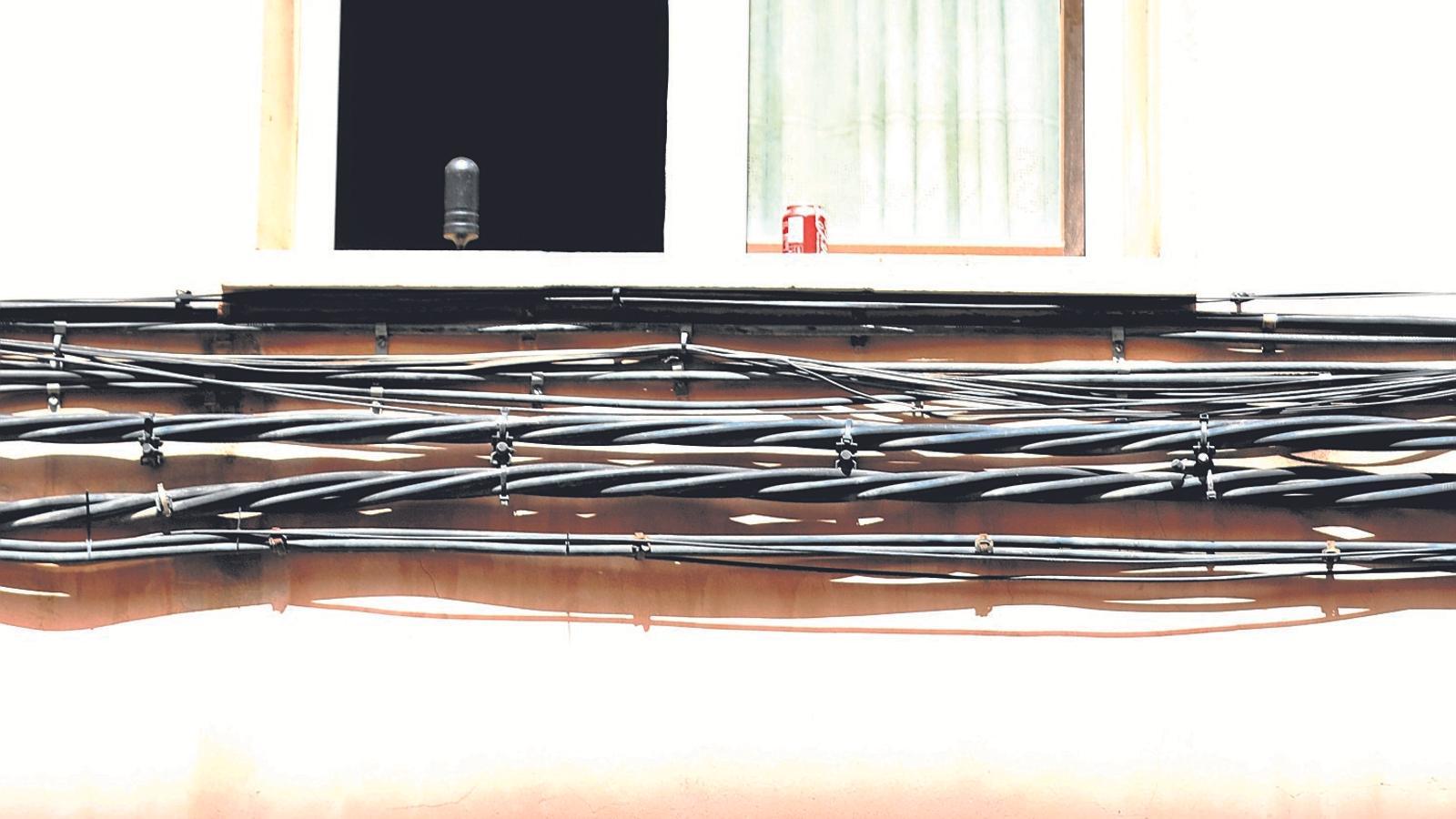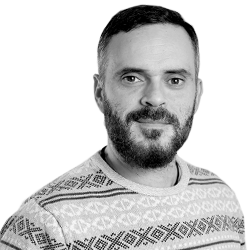"Air conditioning is a luxury we can't afford."
28.6% of islanders suffer from energy poverty due to the heat: they cannot afford the bill and their homes are not well insulated. The islands are the community with the eighth highest vulnerable population.


PalmEva's family crunched the numbers and decided to install air conditioning units with heat pumps in the house in Santa Margalida where she, her children, daughters-in-law, and grandchildren live. "It's old and takes a long time to heat up and cool down," she says. Their comfort lasted until their first bill arrived: 384 euros. "It lowered our blood pressure. The impact was very severe. It caused us more headaches than joy. We installed them ourselves, and they had given us one as a gift," she confesses, to justify their investment.
Eva controls expenses so that her children can work only during the season in the hospitality industry. Precarious salaries, high rent, and the high cost of living force economic engineering. To pay the bill, they canceled a telephone line, borrowed money from friends, and turned to Cáritas, which helped them fill the icebox. "We turned on the air conditioning for the babies. In the winter they get a lot of colds, and in the summer they get rashes and suffer from the heat," she continues. The units are now in a corner. They uninstalled them, and they now face the high temperatures with a couple of fans. "Reality has spoken loud and clear: we can't use air conditioning because we can't afford it," she says.
The Cold of Ireland
The situation Eva describes has a name: energy poverty. The concept originated in Ireland, limited to cold weather, but once extreme temperatures reached Central European countries, studies have expanded to include heat. "Until something is called that, it doesn't exist. Those who cannot meet their basic needs, either due to income or poor home efficiency, suffer from energy poverty. Someone or a family is considered vulnerable when they must spend 10% or more of their salary to meet energy needs," explains María C. Greenpeace Spain. A study published by the environmental organization, in collaboration with the Ecology and Development Foundation Ecodes, concludes that in Spain, energy poverty in summer is double that of winter—33.6% of citizens compared to 16%—and affects one in two vulnerable families, with a percentage of 53.3%. In the Balearic Islands, 28.3%—33.6% in Spain—of the population cannot maintain an adequate temperature in their homes in summer due to the high cost of electricity and poor home insulation. The Canary Islands are the eighth autonomous community with the highest vulnerable population: 55.7%, 2.4 points above the national average.
Heat has a greater impact on the most poorly insulated homes, as well as on the health, economy, and well-being of families. "Our homes, which should be our first and most important refuge in an increasingly warmer climate, become permanent radiators in the summer, due to the poor insulation of 95% of homes. This forces us to choose between facing high electricity bills to try to cool them, with the resulting unbearable heat of houses turned into ovens," Prado continues.
Associations and experts are calling on the Spanish government to include the variable of heat in the surveys of the National Strategy against Energy Poverty. Greenpeace insists that it should be treated as a priority public health issue. "The State must allocate resources. In 2024, it granted €23 billion in toxic subsidies while this problem is neglected. Resources are needed so that citizens, starting with the most vulnerable, can carry out home renovations. The Spanish government must lead the transformation of the housing stock and force people to sell their homes and sell energy dignity," Prado demands.
The Greenpeace study has documented window frames that show 48 degrees in the cities most affected by the heat. The temperature is combated primarily with energy from fossil fuels or gas. Therefore, they call for "the transformation of all energy uses in the home to renewable energy" and the use of carbon-free alternatives, such as solar panels, aerothermal energy, or geothermal energy.
According to data from the Ministry for Ecological Transition and the Demographic Challenge for 2021, 21.8% of households in the Balearic Islands (five points more than the Spanish average) spend more on energy than their income allows. On the other hand, 6.1% (11.8% in Spain) fall into the hidden energy poverty group: those who reduce consumption to a minimum (less than half the average) and expose themselves to extreme heat. Finally, 11% (9.5% in Spain) are late paying their bills.
Cold shower
Jimena has air conditioning, but she turns it on "barely half an hour a day." "I'm afraid of the bill that might come, and I'll only be there if the heat becomes unbearable with the fan," she confesses. Similarly, Loli agrees with the latest figures: "Air conditioning? It's a luxury we can't afford! Who has that much to pay for electricity? I can't perform miracles to feed the whole family. We rely on a pot that feeds us for two or three days and a quick cold shower."
For Rosa, a device to cool her old apartment—"a bread oven"—is unattainable. Her salary as a night-shift cleaner at the Palma de Mallorca Intermodal Station covers rent, food, and "very controlled" bills. "Earnings to live from day to day. At my job, there's no air conditioning. I leave at dawn with my uniform soaked, and when I get home, I can't sleep. I shower and toss and turn. Toss and turn." In addition to insomnia, the heat causes low blood pressure, slow digestion, and skin irritations, among other things. "There's a cumulative effect. You don't rest well, and it subjects the body to stress that affects your mood and fatigue. And you can suffer heat stroke, which occurs when the body is unable to pump all the blood needed to cool itself," warns doctor Miquel Estelrich, who recommends drinking water to stay hydrated.
Cáritas Mallorca uses its own funds to pay for bills for those who can't afford them. They act as a buffer zone until the Catalan government publishes the aid to alleviate energy poverty, which in 2024 benefited 129 households with €23,242. The organization is primarily served by families with children. "It's not that they don't want to use appliances, it's that they don't have them, and this year it's hotter," says Puri López, head of Territorial Social Action at Caritas's Part Forana. They provide guidelines and strategies to save electricity and avoid "chronicizing the situation," she says, before emphasizing another issue arising from the residential emergency: "We serve families who live in rented rooms. Sometimes they don't even have fans in shared spaces. Or they don't turn them on. These are the people who live crowded together, for whom I'm referring."
